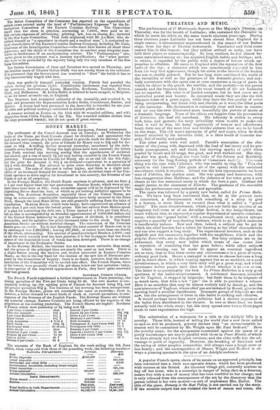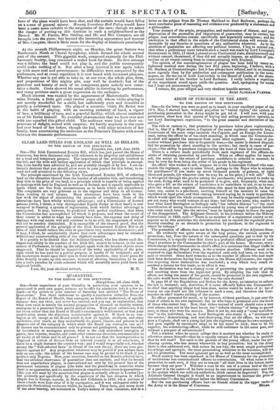A popular French opera, shorn of its music on an
approved principle, has been converted into a little non-operatic drama, which has been produced with success at the Strand. An innocent village girl, naturally anxious to buy off her lover, who is a conscript in danger of being shot as a deserter, makes free with a sum of money that has been confided to her charge; and is only released from the consequences of the act by the discovery that the person robbed is her own mother—a sort of unpleasant Mrs. Haller. The title of the piece, Honesty is the Best Policy, is not carried out by the story. It' the amiable culprit had not violated the laws of mown and tuum, the
hero of the piece would have been shot, and the curtain would have fallen on a scene of general misery. Honesty Sometimes Bad Policy would have been a nage more suitable to the exigencies of the case; though we admit the danger of putting up this doctrine in such a neighbourhood as the Strand. Mr. W. Farren, Mrs. Stirling, and Mr. and Mrs. Compton, are all brought into the piece; but beyond the interesting appearance and manner of Mrs. Compioh, there is little room for the display of histrionic peculiarity



























 Previous page
Previous page